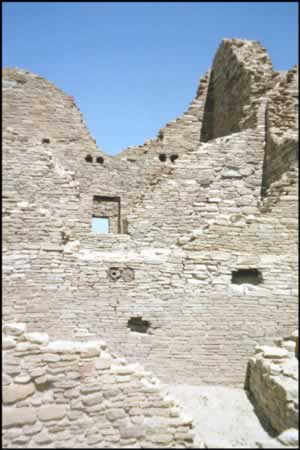|
High Altitude Health Tips
The weather is one of Albuquerque's greatest attractions. Albuquerque is the "high desert" with an elevation of 5352 ft. Albuquerque has four distinct seasons, low humidity and more than 310 days of sunshine a year.
Here are some health tips for those arriving from lower altitudes:
- Take it easy. Albuquerque's high altitude means air is rarefied, thinner. It usually takes about 48 hours to adjust.
- Drink plenty of water! 64 ounces a day is recommended.
- Watch your alcohol intake. One drink is the equivalent of three at sea level.
- Use sunscreen and wear a hat.
Seniors: Check with your doctor regarding any physical condition that could be affected by Albuquerque's high altitude.
Altitude Sickness Information:
Altitude sickness may develop in travelers who ascend rapidly to higher altitudes, including those in previously excellent health. Being physically fit in no way lessens the risk of altitude sickness. Those who have developed altitude sickness in the past are prone to future episodes. The risk increases with faster ascents and higher altitudes. Symptoms of altitude sickness, may include headaches, nausea, vomiting, and dizziness.
Albuquerque, New Mexico's altitude is 5352 feet above sea level.
Santa Fe, New Mexico's altitude is 6355 feet above sea level.
Preventing Altitude Sickness:
- Ascend gradually or by increments to higher altitudes
- Avoid overexertion
- Eat light meals
- Avoid alcohol (effects of alcohol are magnified at higher altitudes)
Preventing Dehydration:
- Drink plenty of fluids, especially when in the sun.
- Make sure you are taking in more fluid than you are losing.
- Schedule physical outdoor activities for the cooler parts of the day.
- Drink appropriate sports drinks to help maintain electrolyte balance.
Preventing Heat Stroke:
- Drink plenty of fluids during outdoor activities, especially on hot days. Water and sports drinks are the drinks of choice; avoid tea, coffee, soda and alcohol as these can lead to dehydration.
- Wear lightweight, tightly woven, loose-fitting clothing in light colors.
- Schedule vigorous activity and sports for cooler times of the day.
- Protect yourself from the sun by wearing a hat, sunglasses and using an umbrella.
- Increase time spent outdoors gradually to get your body used to the heat.
- During outdoor activities, take frequent drink breaks and mist yourself with a spray bottle to avoid becoming overheated.
- Try to spend as much time indoors as possible on very hot and humid days.
Five easy recommendations for sunburn protection:
- Seek shade, especially during midday when UV rays are strongest
- Cover up with light clothing to protect exposed skin
- Get a hat with a wide brim to shade your face, head, ears, and neck
- Wear sunglasses that block both UVA and UVB rays; and
- Rub on sunscreen with at least SPF 15 and both UVA and UVB protection.
Back to Top
Return to Local Information Page

|

